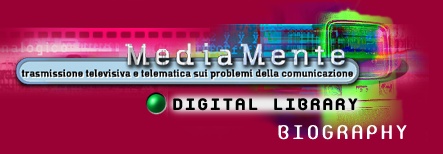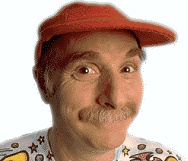 |
 |
Interview
BiographyBorn in Arizona, Rheingold (http://www.rheingold.com
He has always been interested in the power of the human mind, and has specialised in
the exploration of the space where the mind meets technology, analysing the computer as an
extension of the mind. Tools for Thought (1984), which Rheingold describes as an exercise
in retrospective futurism, is from this period. Written in the early '80s it attempted to
imagine the late 1990s. The book is also available on-line (http://www.rheingold.com/texts/ Since 1985 he has participated in an on-line conference system, an exchange of views within a virtual community, covering themes as diverse as technology, society, culture, literature and the future. This led him to reflect on the role of the Internet, which Rheingold describes as a new communal space which derives from a society in transition and which replaces traditional meeting places. On the Internet anyone can express their opinion, without class, racial or gender discrimination. The Internet, he stresses, creates a sense of virtual community among those who express themselves through it. This experience has led to numerous writings on the cultural and political implication
of the new communication technologies. Virtual Reality and the following The Virtual
Community (http://www.rheingold.com/vc/book/index.html
He is both observer and designer of new technologies, and has been called a pioneer, a critic and a prophet of the impact of new technologies. Frequently invited to speak on radio and television, Rheingold has participated in numerous international conferences, and has spoken on the social and economic implications of new technologies in cities throughout the world, including: San Francisco, Atlanta, Bangkok, Cambridge, Tokyo, Lisbon, Copenhagen, Amsterdam, Paris, London. He has published numerous articles and essays on the Internet, technology and education, on democracy and technology. |
|
|||
BibliographyHe is the author of numerous books, including:
|
 |
